Valve Rocker Arm Cover Replacement Right
Removal Procedure
- Disconnect the battery negative cable from the battery.
- Remove the air inlet duct and the air cleaner assembly (L57 only). Refer to Air Cleaner Element Replacement (EFI/MFI) in Engine Controls.
- Remove the draft tube nuts and stud.
- Remove the draft tube from the intake stud on engine.
- Remove the upper intake manifold from the lower intake manifold (L65 only). Refer to Intake Manifold Replacement .
- Move the engine wiring harness to the rear of the valve rocker arm cover.
- Remove the turbocharger assembly. Refer to Turbocharger Removal .
- Remove the lower intake manifold from the cylinder heads.
- Refer to Intake Manifold Replacement .
- Remove the fuel injection lines from the fuel injectors.
- Remove the valve rocker arm cover bolts from the cylinder head.
- Remove the valve rocker arm cover from the cylinder head.
- Remove the RTV from the valve rocker arm cover.
- Remove all oil and grease from the sealing surfaces from the cylinder head. Refer to Cylinder Head Clean and Inspect .
Caution: Before servicing any electrical component, the ignition and start switch must be in the OFF or LOCK position and all electrical loads must be OFF, unless instructed otherwise in these procedures. If a tool or equipment could easily come in contact with a live exposed electrical terminal, also disconnect the negative battery cable. Failure to follow these precautions may cause personal injury and/or damage to the vehicle or its components.
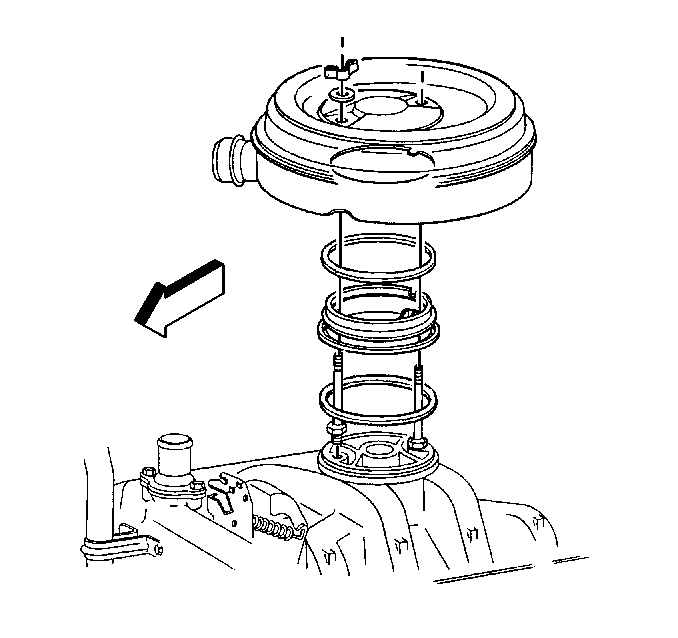
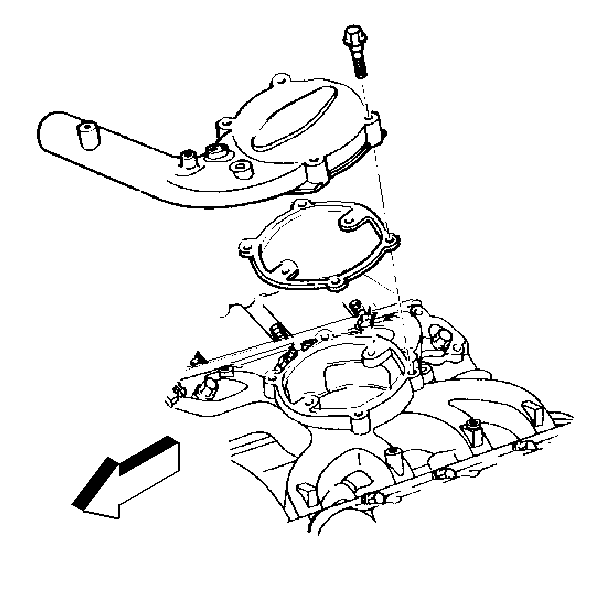
Important: Mark the fuel injection line retaining clips and brackets in order to ensure proper reinstallation.
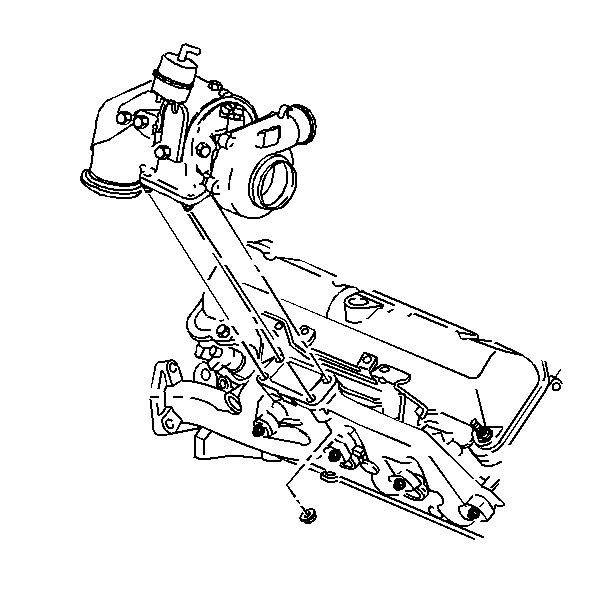
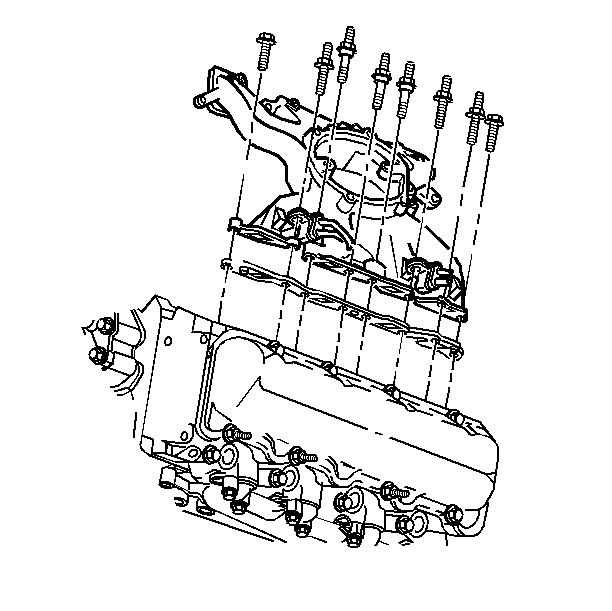
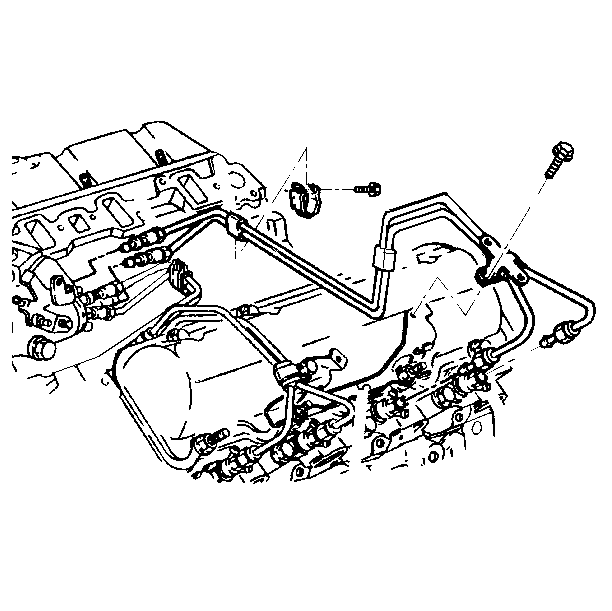
| • | For the L65, refer to Injection Line(s) Replacement in Engine Controls |
| • | For the L57, refer to Injection Line(s) Replacement (EFI/MFI) in Engine Controls |
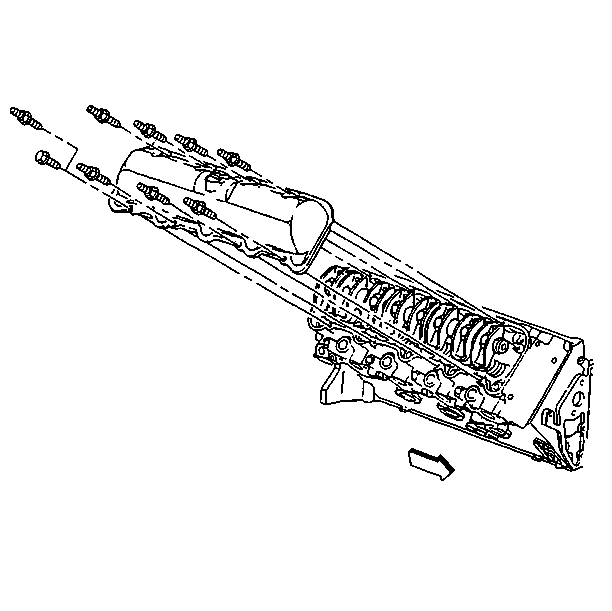
Notice: Prying on the valve rocker arm cover may cause damage to the sealing surfaces. Use a block of wood against the side of the valve rocker arm cover and strike with a hammer in a sideways direction to shear the RTV sealant.
Installation Procedure
- Apply a 5 mm (3/16 in) bead of RTV sealant GM P/N 12345739 to the valve rocker arm cover, inboard of the bolt holes. The sealer must be wet to the touch when the bolts are tightened.
- Install the valve rocker arm cover to the cylinder head.
- Install the valve rocker arm cover bolts to the cylinder head.
- Install the fuel injection lines to the fuel injection pump and fuel injectors.
- Install the lower intake manifold to the cylinder heads.
- Refer to Intake Manifold Replacement .
- Install the turbocharger assembly. Refer to Turbocharger Installation .
- Install the draft tube to the engine.
- Install the draft tube nuts and stud.
- Install the air inlet duct and the air cleaner assembly (L57 only). Refer to Air Cleaner Element Replacement (EFI/MFI)
- Install the upper intake manifold to the lower intake manifold (L65 only). Refer to Intake Manifold Replacement .
- Install the retainers and clips to their original location as marked during the removal procedure.
- Install the engine wiring harness to the rear of the valve rocker arm cover.
- Connect the battery negative cable to the battery.
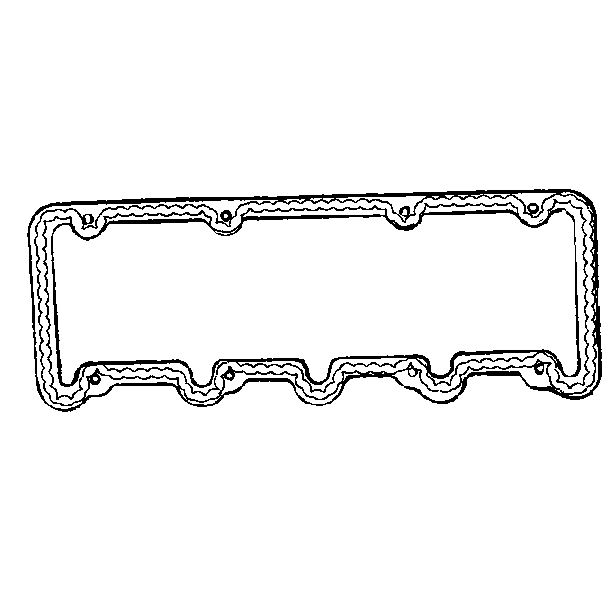
Notice: Do not allow the RTV sealant to enter any blind threaded hole. RTV sealant that is allowed to enter a blind threaded hole can cause hydraulic lock of the fastener when the fastener is tightened. Hydraulic lock of a fastener can lead to damage to the fastener and/or the components. Hydraulic lock of a fastener can also prevent the proper clamping loads to be obtained when the fastener is tightened. Improper clamping loads can prevent proper sealing of the components allowing leakage to occur. Preventing proper fastener tightening can allow the components to loosen or separate leading to extensive engine damage.

Notice: Use the correct fastener in the correct location. Replacement fasteners must be the correct part number for that application. Fasteners requiring replacement or fasteners requiring the use of thread locking compound or sealant are identified in the service procedure. Do not use paints, lubricants, or corrosion inhibitors on fasteners or fastener joint surfaces unless specified. These coatings affect fastener torque and joint clamping force and may damage the fastener. Use the correct tightening sequence and specifications when installing fasteners in order to avoid damage to parts and systems.
Tighten
Tighten the bolts to 27 N·m (20 lb ft).

| • | For the L65, refer to Injection Line(s) Replacement in Engine Controls |
| • | For the L57, refer to Injection Line(s) Replacement (EFI/MFI) in Engine Controls |


Tighten
Tighten the draft tube nuts and stud to 40 N·m (30 lb ft).


Valve Rocker Arm Cover Replacement Left
Removal Procedure
- Disconnect the battery negative cable from the battery.
- Remove the upper intake manifold from the lower intake manifold (L65 only). Refer to Intake Manifold Replacement .
- Remove the lower intake manifold from the cylinder heads.
- Refer to Intake Manifold Replacement
- Remove the fuel injection lines from the fuel injectors.
- Remove the oil level indicator and tube from the engine block. Refer to Oil Level Indicator and Tube Replacement .
- Remove the engine wiring harness from the rear of the left valve rocker arm cover and move to the side.
- Remove the valve rocker arm cover bolts from the cylinder head.
- Remove the valve rocker arm cover from the cylinder head.
- Remove the RTV from the valve rocker arm cover.
- Remove all oil and grease from the sealing surfaces from the cylinder head. Refer to Cylinder Head Clean and Inspect .
Caution: Before servicing any electrical component, the ignition and start switch must be in the OFF or LOCK position and all electrical loads must be OFF, unless instructed otherwise in these procedures. If a tool or equipment could easily come in contact with a live exposed electrical terminal, also disconnect the negative battery cable. Failure to follow these precautions may cause personal injury and/or damage to the vehicle or its components.

Important: Mark the fuel injection line retaining clips and brackets in order to ensure proper reinstallation.


| • | For the L65, refer to Injection Line(s) Replacement in Engine Controls |
| • | For the L57, refer to Injection Line(s) Replacement (EFI/MFI) in Engine Controls |
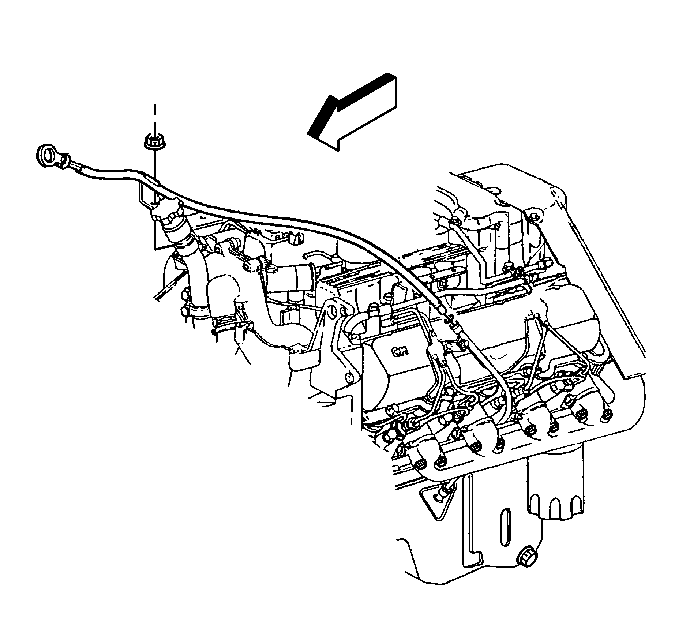
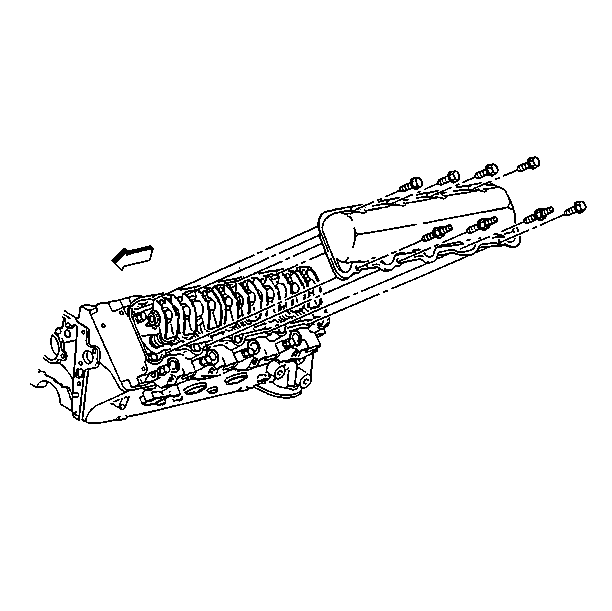
Notice: Prying on the valve rocker arm cover may cause damage to the sealing surfaces. Use a block of wood against the side of the valve rocker arm cover and strike with a hammer in a sideways direction to shear the RTV sealant.
Installation Procedure
- Apply a 5 mm (3/16 in) bead of RTV sealant GM P/N 12345739 to the valve rocker arm cover, inboard of the bolt holes. The sealer must be wet to the touch when the bolts are tightened.
- Install the valve rocker arm cover to the cylinder head.
- Install the valve rocker arm cover bolts to the cylinder head.
- Install the fuel injection lines to the fuel injection pump and fuel injectors.
- Install the lower intake manifold to the cylinder heads.
- Refer to Intake Manifold Replacement in Engine Controls.
- Install the upper intake manifold to the lower intake manifold (L65 only). Refer to Intake Manifold Replacement .
- Install the retainers and clips to their original location as marked during the removal procedure.
- Install the engine wiring harness to the rear of the left valve rocker arm cover.
- Install the oil level indicator and tube. Refer to Oil Level Indicator and Tube Replacement .
- Connect the battery negative cable to the battery. Refer to Battery Cable Replacement .

Notice: Do not allow the RTV sealant to enter any blind threaded hole. RTV sealant that is allowed to enter a blind threaded hole can cause hydraulic lock of the fastener when the fastener is tightened. Hydraulic lock of a fastener can lead to damage to the fastener and/or the components. Hydraulic lock of a fastener can also prevent the proper clamping loads to be obtained when the fastener is tightened. Improper clamping loads can prevent proper sealing of the components allowing leakage to occur. Preventing proper fastener tightening can allow the components to loosen or separate leading to extensive engine damage.

Notice: Use the correct fastener in the correct location. Replacement fasteners must be the correct part number for that application. Fasteners requiring replacement or fasteners requiring the use of thread locking compound or sealant are identified in the service procedure. Do not use paints, lubricants, or corrosion inhibitors on fasteners or fastener joint surfaces unless specified. These coatings affect fastener torque and joint clamping force and may damage the fastener. Use the correct tightening sequence and specifications when installing fasteners in order to avoid damage to parts and systems.
Tighten
Tighten the bolts to 27 N·m (20 lb ft).

| • | For the L65, refer to Injection Line(s) Replacement in Engine Controls |
| • | For the L57, refer to Injection Line(s) Replacement (EFI/MFI) in Engine Controls |



